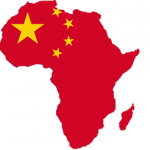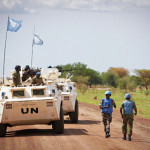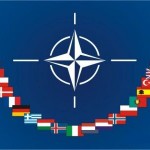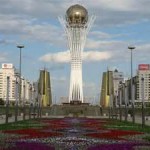Kapok Tree Diplomacy
Exploring the conduct of international relations and the ideals of democracy & individual liberty in the context of the Christian worldview.

Categories
Disclaimer
The posts, views and opinions expressed on this site are completely my own and do not represent the views or opinions of my employer, the Department of Defense (DoD), any member of the Armed Forces, or any company that is part of the defense industrial base.
Other Site Pages
-
Recent Posts
- Reflections on the Israel-Hamas Conflict in Gaza and Stray Voltage on Genocide, Proportionality, Apartheid, Collective Punishment, and the Impact of the (Demise of) the Right of Conquest November 7, 2023
- Availability of Articles for Download December 20, 2018
- Competing Visions for U.S. Grand Strategy March 13, 2015
- China’s Assertion of Sovereign Authority in the Global Commons and the Escalation of Legal Warfare in the Arctic October 2, 2013
- Theodore Roosevelt “Citizenship in a Republic” Speech May 9, 2013
Recent Comments
- admin on Ecuador and China: BFFs and Champions of the 21st Century Socialist Agenda
- Bryan Stewart on Ecuador and China: BFFs and Champions of the 21st Century Socialist Agenda
- admin on Ecuador and China: BFFs and Champions of the 21st Century Socialist Agenda
- Mike Warren on Ecuador and China: BFFs and Champions of the 21st Century Socialist Agenda
- amaka chukwujekwu on Is International Relations a Science?
Like Kapok Tree Diplomacy on Facebook
Subscribe to Blog via Email
Featured Posts
Admin
Kapok Tree Monthly Archive
 Lawfare Blog on Armed Conflict
Lawfare Blog on Armed Conflict- Palestinian Rights Groups File Lawsuit Against President Biden November 14, 2023The lawsuit alleges President Biden failed to prevent genocide in Gaza, and seeks to limit U.S. assistance to Israel going forward.
- Palestinian Rights Groups File Lawsuit Against President Biden November 14, 2023
 Christian Post World News
Christian Post World News- Court rules against 42 churches trying to leave UMC November 15, 2023A court has rejected a lawsuit by 42 congregations in Alabama and Florida who were trying to leave the United Methodist Church but believed that the disaffiliation process was unfair. #UnitedMethodistChurch #Florida #Alabama #schism #disaffiliation #UMC #court
- Report: Scott Sauls' resignation followed culture of 'relational, emotional, and spiritual neglect' November 15, 2023The Nashville Presbytery has released a statement regarding the resignation of Scott Sauls, former pastor of Christ Presbyterian Church, revealing the pastor subjected church staff to a pattern of “relational, emotional, and spiritual neglect” and broke the 9th commandment “by fostering a culture of mistrust among the staff.” #ScottSauls #ChristPresbyterianChurch #Nashville
- 'Bless the nation of Israel': Nearly 300,000 rally in support of Israel, Hamas hostages November 15, 2023Nearly 300,000 interfaith people rallied in Washington on Tuesday for the March for Israel, calling for the release of the hostages held by Hamas and declaring that “never again is now” in response to the terrorist group’s Oct. 7 invasion. #Israel #MarchforIsrael #antisemitism #Hamas #Israelihostages
- Over 44K people sign petition standing with Bishop Strickland following his ouster November 15, 2023More than 40,000 people have signed a petition standing with an ousted Catholic bishop days after he was removed from his post. #CatholicChurch #PopeFrancis #JosephStrickland #Vatican #LifePetition
- Max Lucado on returning to the true meaning of Christmas, pastoral burnout and a health update (exclusive) November 15, 2023As the world grapples with unprecedented challenges, pastor and bestselling author Max Lucado is calling for a return to the foundational truths of the Christmas season, urging believers and the broader community to rediscover the peace and resilience found in the story of Jesus Christ's birth. #MaxLucado #Christmas #pastoralburnout
- It's time schools stop failing our children November 15, 2023It is time this country’s educational system returned to a moral and ethical pedagogy — let’s return the power of a quality education to the parents in America. #Criticalracetheory #children #schooling #homeschooling
- Thanksgiving series: Psalm 100 and the proclamation of Thanksgiving November 15, 2023As we march toward the Thanksgiving holiday, we are considering Psalm 100, which is appropriate and fitting to study this month. #Thanksgiving #gratitude #Gospel #victory
- Court rules against 42 churches trying to leave UMC November 15, 2023
 Charisma News
Charisma News- CeCe Winans Shares The Importance of Being Part of a Church September 22, 2023Join host Shelby Bowen as she interviews GRAMMY Award-winning artist CeCe Winans. Listen as Winans shares details about her new book, "Believe For It," and the importance of being a part of a church.Charisma Podcast Network 558901
- The Domino Revival - Showcasing Miracles and Prophecies in the Current Revival with Mike Signorelli July 21, 2023Join us for an extraordinary journey into the heart of a powerful revival sweeping the nation! "The Domino Revival" is a groundbreaking documentary film that captures the awe-inspiring moments of medically verifiable miracles, prophecies, and deliverances taking place across the United States. Pastor Mike Signorelli, a visionary leader of V1 Church, takes us on an […]Charisma Podcast Network 558901
- Mike Bickle reacts to 21 day fast for Israel June 2, 2023Mike Bickle reacts to 21 day Isaiah62 fast for IsraelCharisma Podcast Network 558901
- Man's back Miraculously healed! Mario Murillo tells the powerful story! May 18, 2023Read the full article on http://www.CharismaNews.com There are many skeptics that say testimonies of healing in Christian crusades are a farce. Then there are Christians that say that God's healing power was only for biblical times and does not happen in the modern world. Evangelist Mario Murillo says that, since his ministry is flooded with […]Charisma Podcast Network 558901
- CeCe Winans Shares The Importance of Being Part of a Church September 22, 2023
Meta




Blind Man’s Bluff: Kazakhstan’s Mirage of Compliance with International Obligations to Uphold the Freedom of Expression and Freedom of Assembly and Association
“Blind Man’s Bluff: Kazakhstan’s Mirage of Compliance with International Obligations to Uphold the Freedom of Expression and Freedom of Assembly and Association” by Kapok Tree Diplomacy
© Kapok Tree Diplomacy. May 2011. All rights reserved. Jeff Dwiggins.
FREE PREVIEW
Section One – The Right to Freedom of Expression
ICCPR Principles and Obligations. The Universal Declaration of Human Rights (UDHR), though not legally binding, declares that “Everyone has the right to freedom of opinion and expression … and to seek, receive and impart information and ideas through any media and regardless of frontiers” (Art. 19).The ICCPR, which Kazakhstan ratified in 2006 (UN Treaty Collection), expands upon this definition and binds state parties “in accordance with its terms and with international law” (Steiner, Alston and Goodman (SAG) 152). Treaty obligations are to be governed by the Vienna Convention’s Article 26 fundamental principle of pacta sunt servanda which states, “[e]very treaty in force is binding upon the parties to it and must be performed by them in good faith” (Dunoff, Ratner & Wippman (DRW) 58). Article 19 of the ICCPR declares:
(1) Everyone shall have the right to hold opinions without interference.
(2) Everyone shall have the right to freedom of expression; this right shall include freedom to seek, receive and impart information and ideas of all kinds, regardless of frontiers, either orally, in writing or in print … or through any other media
(3) The exercise of the rights … may therefore be subject to certain restrictions, but these shall only be such as are provided by law and are necessary, (a) for respect of the rights or reputations of others, and (b) for the protection of national security or of public order, or of public health or morals. (1966)
ICCPR General Comment No. 34. The ICCPR Committee recently issued General Comment (GC) No. 34, which elaborated further on the meaning of freedom of expression and is intended to provide additional specificity and clarification to states on their obligations associated with this right. GC No. 34 explains, “Freedom of expression is a necessary condition for the realization of the principles of transparency and accountability” (para. 2), and adds that it cannot be “derogated from during times of emergency” (para. 4), nor silenced by “arbitrary arrest, torture, [and] threats to life and killing” (para. 22).
The Committee asserts, “A free, uncensored and unhindered press or other media is essential in any society” (para. 12), and states must guarantee media “independence and editorial freedom” (para. 15). The Committee affirms that the general public must have access to “information held by public bodies” (para. 17), and restrictions to expression imposed on grounds of national security or public order cannot “put in jeopardy the right itself”(para. 20). Monopoly control of the media by the state is highly discouraged (para. 41).
Finally, the Committee says “the mere fact that forms of expression are considered to be insulting to a public figure is not sufficient to justify the imposition of penalties” (GC 34 para. 40), and makes it clear that states cannot ban or shut down media providers, “impose onerous licensing conditions and fees” on them, or allow “excessive punitive measures and penalties” be imposed on them in libel or defamation lawsuits on the basis of the media provider being “critical of the government” (GC 34 paras. 41, 44, 45 & 49).
Entire essay is 7,209 words, 26 pages double-spaced, 42 references
The posts, views and opinions expressed in this paper are completely my own and do not represent the views or opinions of the Department of Defense (DoD), the Department of the Navy (DON) or any of the Armed Forces.
Table of Contents
I. The Right to Freedom of Expression
A. ICCPR Principles and Obligations
B. ICCPR General Comment No. 34
C. OSCE Principles and Obligations
II. The Right to Freedom of Assembly and Association
A. Background
B. ICCPR Principles and Obligations
C. OSCE Principles and Obligations
III. Freedom of Expression – Gaps between Practice & Commitments
A. Kazakhstan’s National Legal Framework for Upholding Freedom of Expression
1. Libel
B. International Assessment of Kazakhstan’s Record on FOE – the 2010 UPR
C. Other International Assessment of Kazakhstan’s Record on FOE – NGOs and Think Tanks
D. Other High Profile Cases
IV. FOE – Recommendations to Achieve Greater Compliance
V. Freedom of Assembly and Association (FOAA)-Gaps between Practice & Commitments
A. Kazakhstan’s National Legal Framework for Upholding FOAA
B. International Assessment of Kazakhstan’s Record on FOAA – the 2010 UPR
C. Other International NGOs and Think Tanks’ Assessment on FOAA
D. Forming Political (Parties) Associations
E . Restrictions on FOAA for Religious Groups
VI. FOAA – Recommendations to Achieve Greater Compliance
VII. Conclusion
Share this:
Like this: